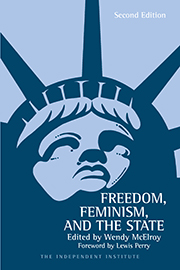Bill Cosby is the latest cultural icon to face highly publicized and unproven allegations of sexual misconduct.
Indeed, police charges have not even been filed. Whatever may be proven true of Cosby’s conduct, the emerging scandal once again raises questions about how society should deal with accusations.
What can be done about the growing perception that false accusations—especially by women—are commonplace in matters of divorce, child support, and in sexual abuse cases that devolve into little more than competing stories?
The false accusations that grab the spotlight are usually connected to sexual abuse and celebrities. For example, one headline last week read, “H.S. Coach Awarded $4.5 Million for False Accusation in Sex Case: No Charges Were Ever Filed Against Patrick Gillan.”
Nevertheless, Gillan’s mug shot was displayed on TV and in several newspapers, along with the accusation. Another headline stated, “Woman Who Accused Celine Dion’s Husband of Rape Gets Prison.” The article went on to explain, “A woman who tried to extort millions of dollars . . . has been sentenced to up to five years in prison.”
But the false accusations that impact most people are more commonplace. They often occur in the process of divorce, in battles over custody and child support. For years, advocates of fathers’ rights have accused the family courts of being “anti-male” and of rubber-stamping women’s claims. And, judging by increasing interest in concepts like shared custody, their voices are being heard.
Unfortunately, the sensational headlines along with men’s disillusionment are creating something of a backlash against women who make any allegations at all—true or false. The backlash should be directed against the legal system itself for offering incentives to lie.
The fact that people lie—not just women, but people—has been acknowledged for many centuries. It is no coincidence that the Ninth Commandment is “Thou shalt not bear false witness against thy neighbor”; the scripture is widely interpreted to address sworn testimony in court.
Human nature has not changed, and a responsible legal system must promote honesty. For example, the system can require an oath in criminal court and enforce penalties for perjury. To be effective, these safeguards have to be enforced equally on both sexes and all races. Today, the enforcement of such safeguards has become all the more important for women if they wish for their legitimate accusations to be taken seriously in the future.
The ancient Hebrews employed a rather severe standard. Those who gave false testimony before a court were liable for whatever punishment would have been inflicted on the accused, including death.
Fortunately, false accusations can be minimized without draconian measures. The simplest solution is to remove from the legal system incentives to lie. In many cases, removing the incentive will eliminate sensational trials with murky “he said/she said” scenarios.
Often both the incentive and the lie are clear-cut. For example, consider paternity claims that are proven false. Such claims almost never result in legal sanctions against a mother who has knowingly lied. Indeed, she may continue to be rewarded with child support after the falsehood is revealed. This is because many states require “named” fathers to pay child support even when DNA tests prove they have no biological relationship to the children.
The situation may be changing in the near future.
The Washington Times reported on a precedent-setting situation in California where a June court decision and a law that became active on Jan. 1 now allow existing child support obligations to be overturned by men who can prove they are not biological fathers.
One California attorney, Marc Angelucci, is pressing to establish another precedent. He has filed in civil court for restitution from the mother and Los Angeles county officials for child support his client was forced to pay for a child that was not his. His client is Taron James, founder of the organization Veterans Against Paternity Fraud; the next court date is Jan. 25.
This is an ideal area for the courts to eliminate an incentive to lie by removing the reward for doing so and enforcing penalties against fraud. The media-grabbing cases may spotlight false accusations as a social problem, but it is in the day-to-day grind of administering law that the solution will emerge.
Other solutions for removing the incentive to lie exist. To list just two and all too briefly:
- Require criminal charges, like sexual abuse, to be proven beyond a reasonable doubt in criminal court before they can proceed to the far looser standards of evidence (and honesty) within civil courts. This would remove the financial incentive of a civil court award.
- Stop applying anti-SLAPP laws to proven cases of false accusations. Anti-SLAPP laws were passed to prevent large corporations from maliciously suing and, thus, silencing, private citizens and grassroots activists. It prohibits such lawsuits.
In some areas, like Massachusetts, the law has been applied to immunize social workers and mothers who seek custody from the consequences of misconduct. This turns the intent of anti-SLAPP law inside out. It is literally being used by those in power against “the man in the street.”
As juicy accusations flood the news, the weary skepticism with which we view both the accused and the accusers will probably increase. Cynicism is an easy non-solution. Those who wish to resolve the problem of false accusations will roll up their sleeves and start pushing back the legal incentives that reward lies and cheapen justice.









